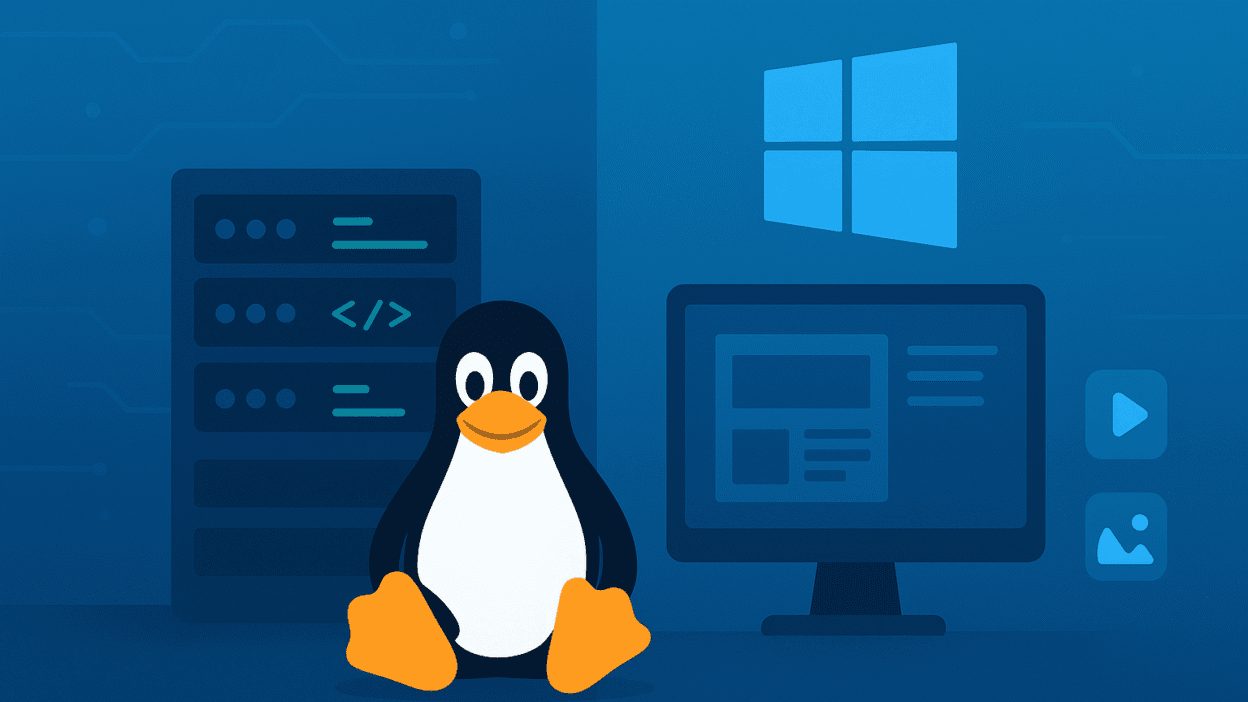Introduction
Choosing an operating system is one of the most important decisions for both personal and professional use. For decades, Windows has been the default choice for many users, while Linux has been the go-to option for developers and IT professionals. In 2025, with the rise of open-source software and cloud computing, the debate between Linux and Windows has become more relevant than ever. So, which one should you choose? Let’s compare.
Cost and Licensing
Windows is a proprietary operating system, which means users need to purchase licenses. On the other hand, Linux is completely free and open-source. This makes Linux an attractive option for individuals, startups, and enterprises looking to cut costs without sacrificing performance.
Performance and Resource Usage
Linux is lightweight and efficient, capable of running on older machines with minimal resources. Windows, while more user-friendly, tends to consume more system resources. For servers and cloud systems where efficiency is crucial, Linux clearly has the edge.
Security and Updates
Security has always been a strong point for Linux. Its permission system and open-source nature allow vulnerabilities to be patched quickly. Windows, while improved, remains a prime target for malware and ransomware. Linux updates are faster, non-intrusive, and rarely require reboots, making it more reliable for critical systems.
Software Compatibility
Windows is known for its vast library of applications, especially gaming and enterprise software. Linux, while catching up, still lacks some proprietary software support. However, tools like Wine, Proton, and virtual machines have made it easier to run Windows applications on Linux. For developers, Linux provides powerful tools and direct compatibility with programming environments.
User Experience
Windows offers a polished and consistent user interface, making it beginner-friendly. Linux, depending on the distribution, can range from beginner-friendly (Ubuntu, Linux Mint) to highly customizable but complex (Arch Linux, Gentoo). Ultimately, the choice depends on whether you prefer simplicity or flexibility.
Who Should Use What?
- Choose Linux if you are a developer, sysadmin, or someone looking for security, cost savings, and customization.
- Choose Windows if you are a gamer, rely heavily on Microsoft Office, or need access to specific proprietary software.
Conclusion
Both Linux and Windows have their strengths and weaknesses. In 2025, the choice depends on your needs. If you want freedom, security, and performance, Linux is the way to go. If you prioritize compatibility and ease of use, Windows remains a solid option.





